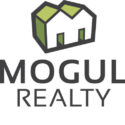Starting your career in real estate investment isn’t cheap. It’s a major hurdle to overcome for many people but there are also many ways you can find the finances and create a situation that makes it possible. There are several options available to make your first purchase, so I’ll start by sharing how I began.
My First Property
The first property I bought I also moved in to – it was a four-family building, three units of which I rented out. Living in your first rental property makes the first purchase much easier for many reasons. First, you can apply for a residential loan instead of a commercial loan if you need to borrow from a bank. They have more accessible requirements and require fewer credentials to be approved. You can also put less money down with an FHA loan and living in the property reduces the cost of insurance.
Banks and insurance companies seem more comfortable with this situation since the worst case scenario is you have a big place, a much different situation from someone trying to purchase a completely separate investment property. It’s also easier to manage since you’re there every day.
If you’re considering moving while starting this business then you could also keep your current home and rent it out once you’ve moved. You’ll know the ins and outs of that building so it’s much less risky than buying a new property as an investment.
The Way of the Fix Up
Many people decide that their first investment property is going to be a cheap property they’ll fix up in their spare time and flip. While that’s common, I’d suggest not doing that for the simple reason that many people tend to overestimate how much free time they’ll have and how long the renovations will last.
Investors who do this are learning DIY construction repairs on their first property. If they make it through the renovations, they often realize they spent as much or more time and money on the repairs, especially after they hire professionals to fix any mistakes. I don’t mean to dissuade you from trying to fix things yourself, but budget around double the time and money than you think it will take if you’re learning. Chalk up the extra time and money as the price of your education.
Cashing Up or Loaning Out for Your First Property
The Traditional Methods
Now for the numbers – real estate is expensive, so money is almost always a problem for people starting out. There are, of course, loans: you can borrow from family, friends and/or banks. There’s also cost-sharing through partnerships, which I also did when I started. If you do decide to start with a partner I suggest doing so on a property-by-property basis since you’ll be learning the ropes, and which they might be doing as well. Starting with a partnership with a more experience investor can be a good start, too, but leave the future open since you’ll have no clue what real estate might hold for you when you’re just starting.
Getting Creative
From this point on we’ll talk about more creative financing. The first option I’ll mention is the self-directed IRA. If you have or are about to switch jobs where you’ll have an IRA sitting you can move it into one of these. Self-directed IRAs are similar to IRAs in the tax benefits they confer, but they tend to have slightly higher management fees and, most importantly for you, they allow investing in alternative investments such as real estate.
Another option is hard money lenders. These are, basically, legal loan sharks specifically for real estate investment. If you search for one in your area you’ll find a number of results, and the usual deal is that they’ll help finance the purchase but not repairs. The loans are collateral based, meaning that in the event of a default they’ll own the property. These are loans for quick turnarounds as they have typically high interest rates, but the flipside is that the lenders can fund quickly, usually within days. This is a risky option, but remember it: if you learn the business front and back then being a hard money lender is a pretty attractive retirement gig.
Those are the methods and channels that can help reduce your costs and make your first (or second, or third, or…) investment property a reality. Just remember, this is a business, so before you borrow anything have a business plan set. Know the industry, read as much as you can and, probably most importantly, talk to people who can give you advice about your real estate market. Find a mentor or an investor club that you trust: You will have issues come up and you will need to talk to someone. For that I strongly suggest looking online for real estate investor Meetup groups. I go to a few here in St. Louis and they’ve been a great resource for me even after 10+ years in the business.

